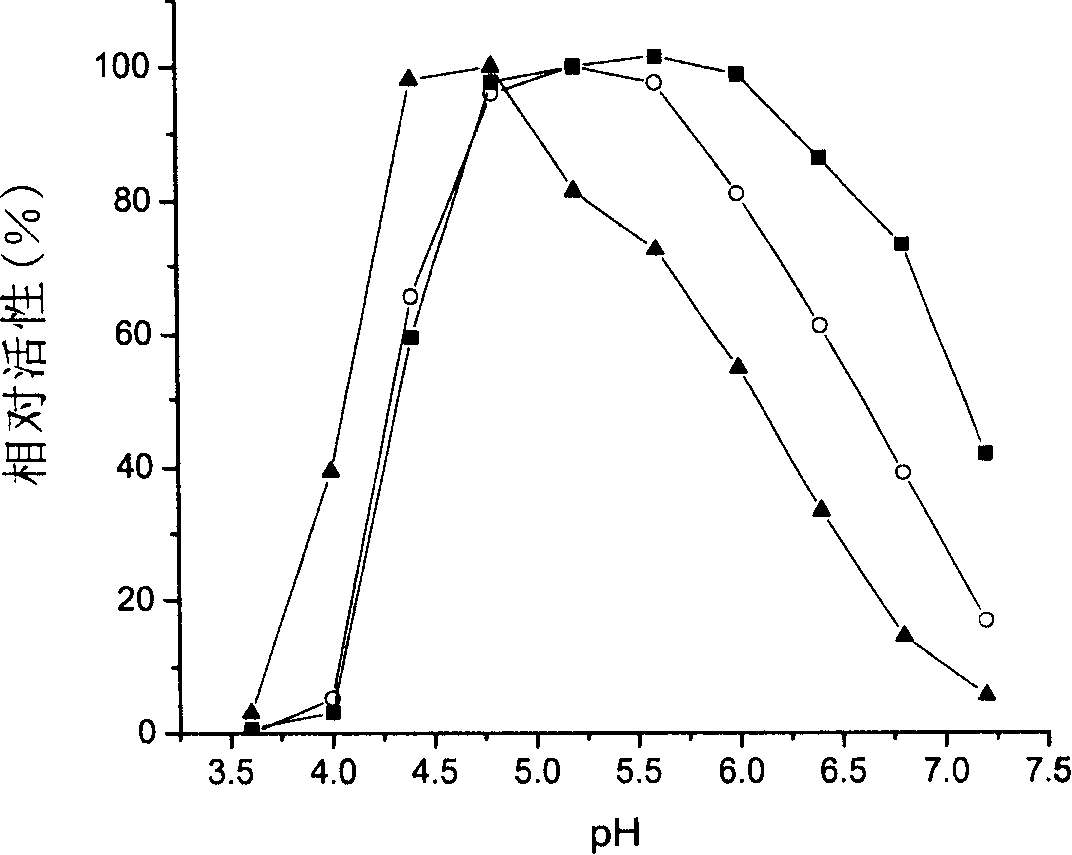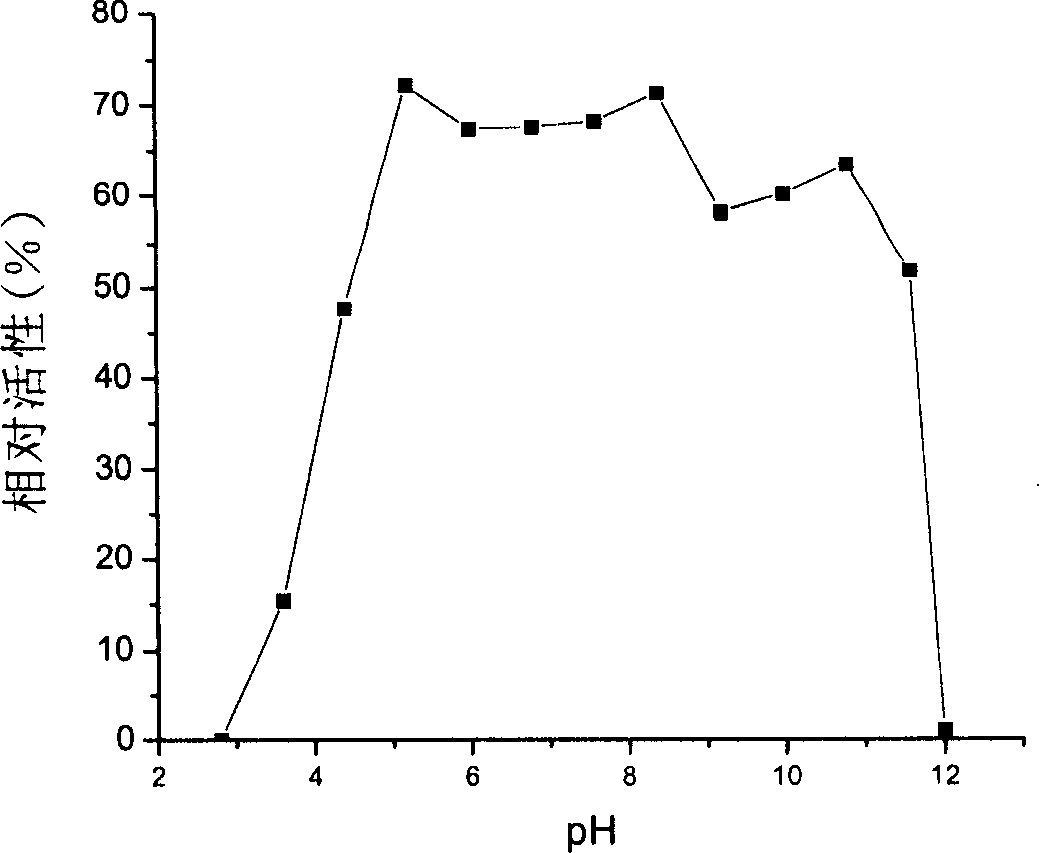Multifunctional cellulase and application thereof
A cellulase, multifunctional technology, applied in applications, enzymes, enzymes, etc., can solve the problem of not being able to adapt to the needs of plant cellulose to convert renewable energy
- Summary
- Abstract
- Description
- Claims
- Application Information
AI Technical Summary
Problems solved by technology
Method used
Image
Examples
Embodiment 1
[0080] Purification of multifunctional cellulase EGX from gastric juice of apple snail
[0081] Apple snails are widely distributed in Fujian, Guangdong, Guangxi, Zhejiang, Jiangsu and other provinces in China. Apple snails were introduced from South America 20 years ago as food. They like to eat seedlings. Even if the water quality is poor, apple snails can multiply and grow, becoming a river. and a scourge in rice fields. The apple snails purchased in the market were used as experimental materials.
[0082] (1) Extract gastric juice from apple snails and precipitate with 65% ammonium sulfate.
[0083] (2) Collect the precipitate, dissolve it with 10 mM phosphate buffer (containing 0.1 M sodium chloride), and dialyze. (3) Purify by DEAE-Sephadex A-50 column chromatography, collect the hydrolysis activity peak of pNPC (p-Nitrophenyl β-D-cellobioside), collect the obtained pNPC hydrolysis activity peak, purify it by molecular sieve column chromatography, and collect the hydro...
Embodiment 2
[0087] Determination of Enzyme Activity of Multifunctional Cellulase EGX from Apple Snail
[0088] 2.1 Determination of Hydrolytic Activity of Sodium Carboxymethyl Cellulose
[0089] 200μl 1% sodium carboxymethylcellulose (dissolved in 100mM pH4.8 sodium acetate buffer, containing 0.1M NaCl) was preheated in a 50°C water bath for 10 minutes, added an appropriate amount of enzyme solution, reacted in a 50°C water bath for 10 minutes, and added 0.5ml containing 40μg / Glucose DNS reagent in ml, soak in boiling water for 6 minutes, immediately cool with cold water, add 0.5ml of double-distilled water, and read the absorbance value at 540nm.
[0090] The hydrolytic activity of sodium carboxymethyl cellulose is defined as one unit (U) of the enzyme amount needed to hydrolyze 1 μmol of glucose reducing equivalent per minute under the above conditions.
[0091] 2.2 Determination of hydrolysis activity of xylan (Oat spelt)
[0092] 500μl 1% xylan (dissolved in 100mM pH4.8 sodium acet...
Embodiment 3
[0103] Enzymatic properties of multifunctional cellulase EGX from apple snail
[0104] 3.1 Optimum pH value and pH stability of EGX
[0105] After mixing 1% soluble xylan, pNPC and sodium carboxymethylcellulose with 0.1M buffer solution (containing 0.1M NaCl) of different pH values, react with an appropriate amount of enzyme at 50°C for 10 minutes, and measure its activity.
[0106] The results showed that the optimum pH values of EGX for hydrolysis of substrates such as soluble xylan, pNPC and sodium carboxymethylcellulose were pH 4.8-6.0, pH 4.8-5.6 and pH 4.4-4.8 ( figure 2 ).
[0107] The enzyme was incubated in 0.1M buffers with different pH values (containing 0.1M NaCl) at 30°C for 24 hours, and then the residual activity of the enzyme activity was determined using pNPC as a substrate.
[0108] The results showed that the pH stability range of EGX was detected by pNPC hydrolysis activity, which showed higher stability in the range of pH5.0-11.0 ( image 3 ).
[...
PUM
 Login to View More
Login to View More Abstract
Description
Claims
Application Information
 Login to View More
Login to View More - R&D
- Intellectual Property
- Life Sciences
- Materials
- Tech Scout
- Unparalleled Data Quality
- Higher Quality Content
- 60% Fewer Hallucinations
Browse by: Latest US Patents, China's latest patents, Technical Efficacy Thesaurus, Application Domain, Technology Topic, Popular Technical Reports.
© 2025 PatSnap. All rights reserved.Legal|Privacy policy|Modern Slavery Act Transparency Statement|Sitemap|About US| Contact US: help@patsnap.com



